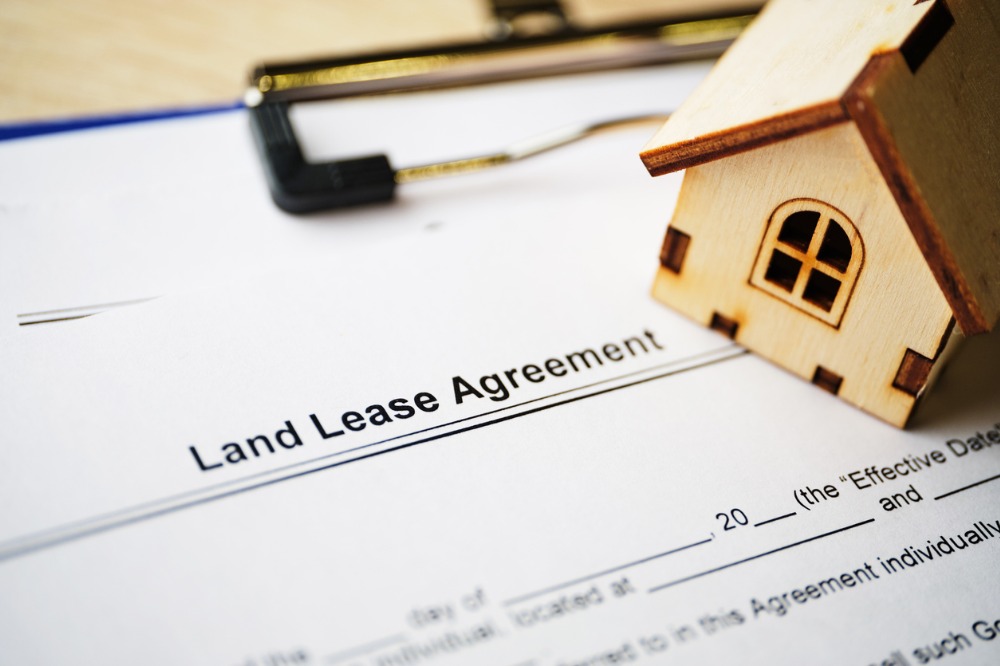Every year, the cost of owning a house increases which makes it difficult for people to settle as homeowners. One solution in looking for an affordable place to live is leasing land. In Ontario, these arrangements are outlined property and taxation laws.
What is a land lease?
A land lease is a contract between a tenant (also called a lessee or a renter) and a landlord (also called a lessor or a landowner).
In this contract, the house, dwelling, or building is owned by the tenant, while the land is owned by the landlord. This land use by the tenant is subject to lease or rental payments. In return, the landlord also provides services, facilities, and amenities that are part of the contract.
Later, a tenant may sell the structure that sits on the land to another tenant, who will now pay the lease or rent to the existing landlord.
What are the laws governing leasing land in Ontario?
Leasing land in Ontario are governed by provincial laws such as:
- Residential Tenancies Act (RTA)
- Statute of Frauds
- Planning Act
The RTA governs most of the legal relationship between a tenant and a landlord. It includes:
- the amount of rent that can be charged
- who pays the maintenance fees
- how eviction by the landlord can be done
Watch this video to know more:
If you need legal assistance with the RTA or with your lease contract or agreement, consult a lawyer in your area. If you’re in Kitchener-Waterloo, for example, contact one of the Lexpert-Ranked best property leasing lawyers in Ontario.
How does leased land work in Ontario?
Leasing land in Ontario gives landlords and tenants certain benefits. For the landlord, to make his land an asset by earning passive income; and for the tenant, to have a cheaper place to live.
An example of leased land in Ontario are mobile home parks. The mobile homes are individually owned but the land where these mobile homes are parked is owned by a landlord. Another example would be retirement communities.
Ontario’s provincial laws and Canada’s common law govern certain aspects of leasing land in Ontario. Below are some ways that leased lands are being regulated in the province:
Lease Agreements
Leasing land in Ontario is heavily reliant on contracts or agreements. This lease contract or lease agreement between both parties must be validly entered into by both parties. This means that there must be consent and that both parties clearly understand what the contract or agreement contains.
Must be in writing
Under Ontario’s Statute of Frauds, all lease agreements must be made in writing to be valid. An exception to this rule is leases whose periods or terms are less than 3 years and where the total rent paid amounts to 2/3 of the full improved value of the property leased.
Necessary terms and conditions
The lease contract or agreement must be clear with its terms and conditions, to prevent any misinterpretation and any disputes in the future.
Here are some of the important terms and conditions that, at the very least, must be indicated in a contract when leasing land in Ontario:
- Names of the landlord and the tenant/s
- Leased property description
- Period of the lease
- Termination or renewal of the lease
- Rent/lease payments
- Rules on utilities and maintenance
Registration of leases
Both landlords and tenants can register the lease, either the lease itself or the notice of lease. This will protect both the landlord and the tenant, such as when the ownership of the land changes, or when there’s non-payment of lease or rent by the tenant.
Registration of leases may be done with the Land Registry Office.
Taxes on leased land in Ontario
To know what taxes apply in your case, it’s best to consult with a property leasing lawyer.
Here are some taxes that landlords and tenants must be aware of:
- Harmonized Sales Tax (HST): applies to lease of commercial properties or non-residential real properties, except for leases of residential properties.
- Non-Resident Withholding Tax: applies to non-resident landlords, whose tenants must withhold 25% of the rental payment.
- Land Transfer Tax: applies when land, or an interest in it, is purchased; does not apply to leases whose total terms do not exceed 50 years.
Period allowed to lease land in Ontario
Since leasing land in Ontario depends on the lease contract or agreement, it follows that parties may indicate any period in their lease agreement.
The RTA and the Planning Act state that the maximum period to lease land in Ontario is only 20 years. This may be extended or renewed after such a period.
In addition, leases that are longer than 21 years must be approved by the municipality where the property is to be valid.
Know more about leasing land in Ontario or any other province by reaching out to the Lexpert-ranked best property leasing lawyers in Canada.





